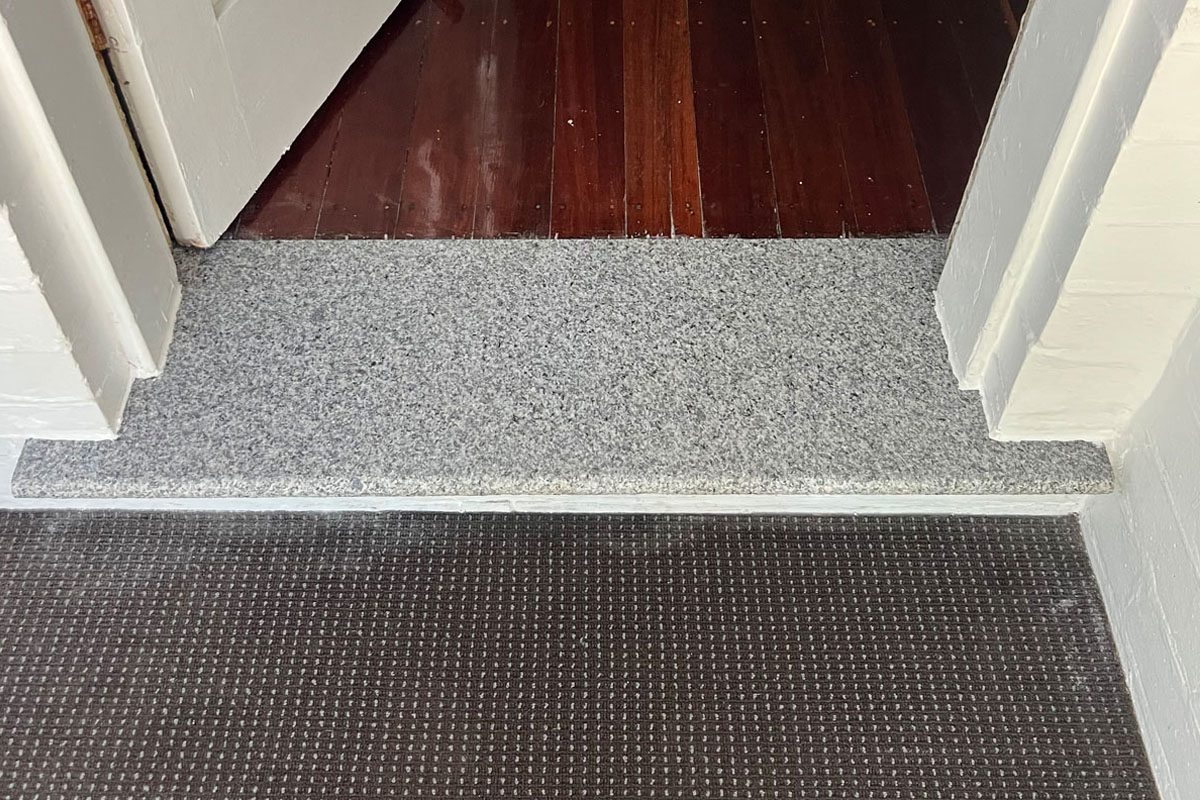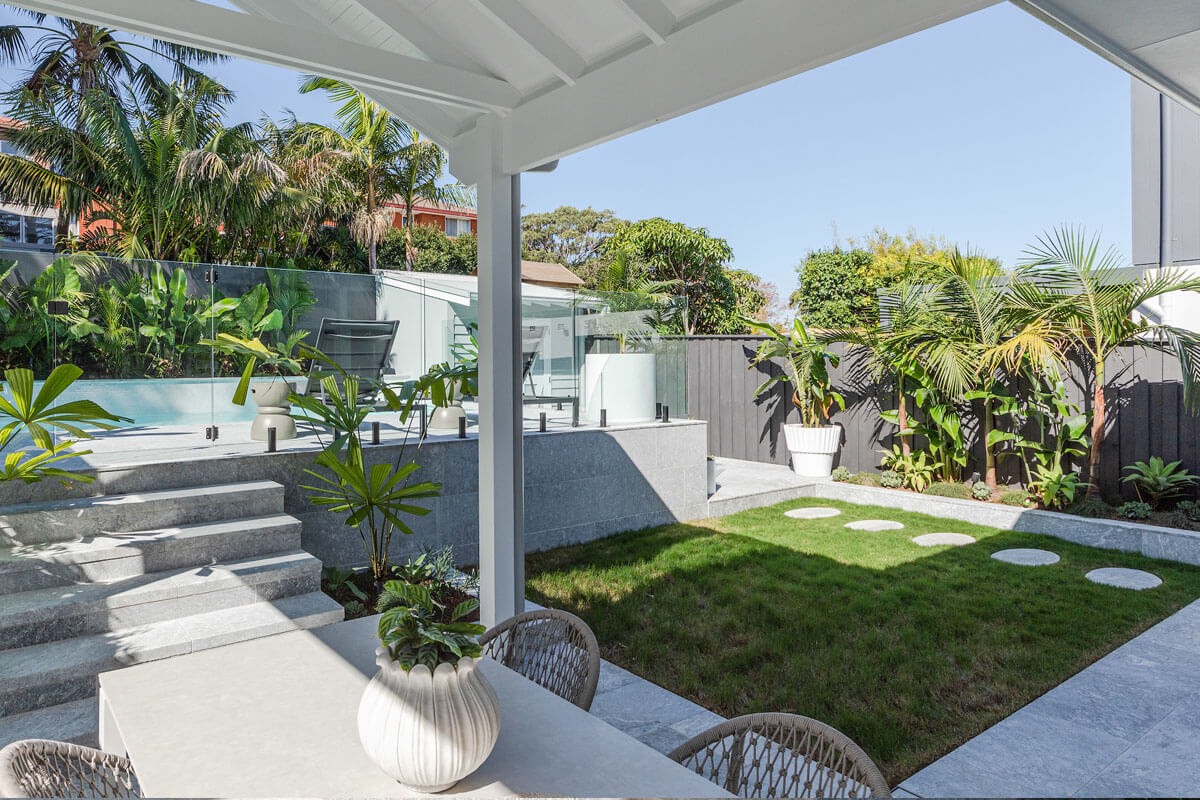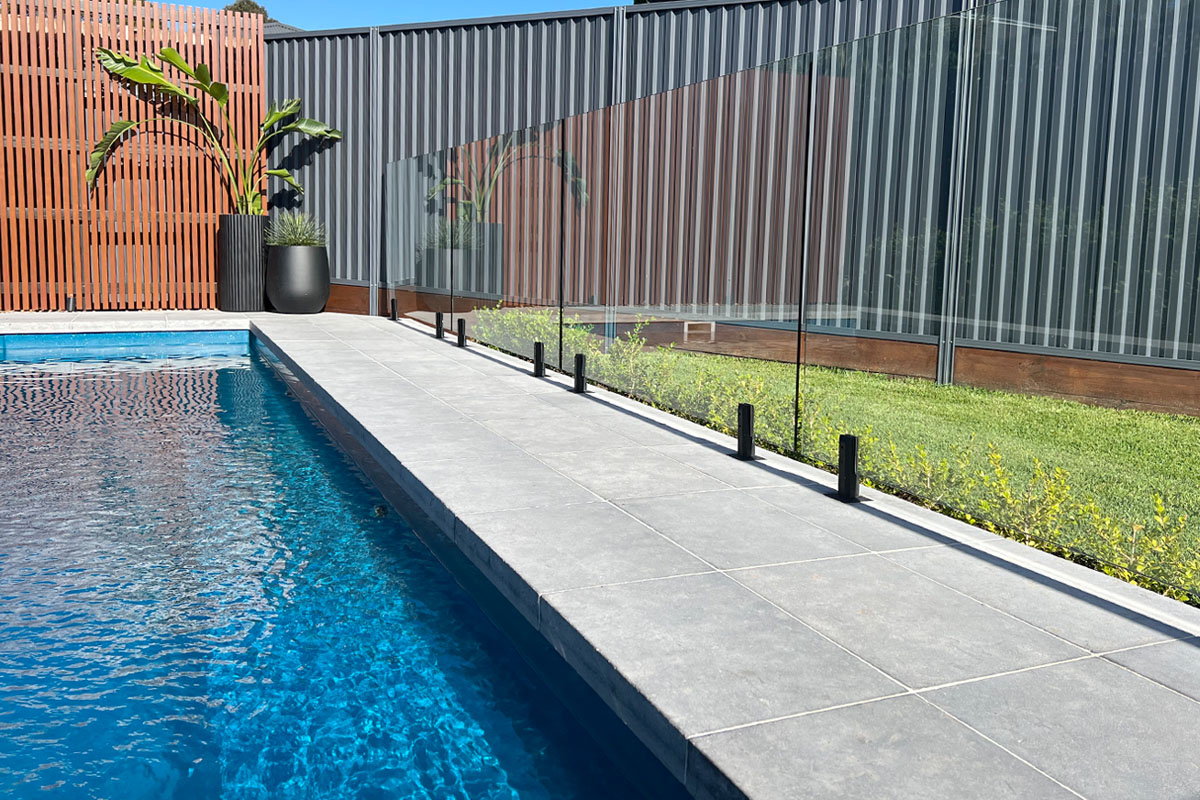Why You Should NEVER Use Sandstone For Around The Pool and What You SHOULD
CAN I USE SANDSTONE AROUND THE SWIMMING POOL?
The short answer is:
No!
You should never use sandstone around the swimming pool.
Why?
Well, very simply, sandstone is an extremely porous product. It is also very vulnerable to acid and salt. Since the pool is always subject to some kind of harsh chemicals and minerals, we do not recommend installing sandstone pavers around the pool.
The long answer is that there is a very fine line when determining if a sandstone paver is suitable to be installed around a pool. You see, the fact of the matter is that some natural stone products are simply not suitable for saltwater pools. For example, some limestone pavers do not meet the Australian Standard for use around pools.
Many people, even within the stone industry, believe that the reason sandstone pavers create issues is due to choosing the incorrect sealant for the stone. But this is a very common misconception. The only reason that sandstone pavers cause issues is because they are not suitable for use around a swimming pool.
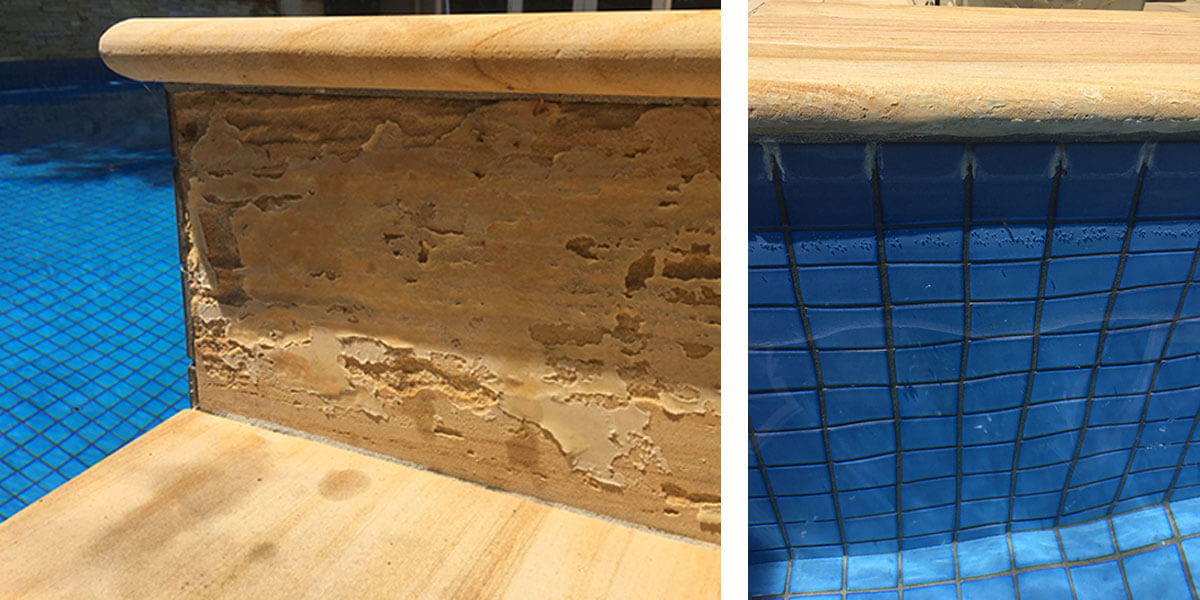
THE SHOCKING AFTER-EFFECTS OF SANDSTONE AROUND THE POOL
Sandstone is a sedimentary rock and it is composed of sand particles (SiO2) and calcite (CaCO3), which binds those sand particles together.
As soon as the stone comes in contact with any form of acid, the acid dissolves the calcium and in doing so, breaks the bond that holds the sand particles together. This causes the sand particles to fall apart and what was once a stone, is now only sand.
Since saltwater is composed of a low PH Hydrochloric Acid (HCL), you can imagine the issues the acid would cause the sandstone over a long period of time.
One of the most famous landmarks that shows this interaction between sandstone and water is the Twelve Apostles in Melbourne, Australia. If you have been there, you would have seen the erosion caused by the sea (salt) water over the years. Now imagine installing sandstone pavers around your pool. That same erosion will start in your very own backyard.
If I were you, I would avoid that at all costs, wouldn’t you agree?

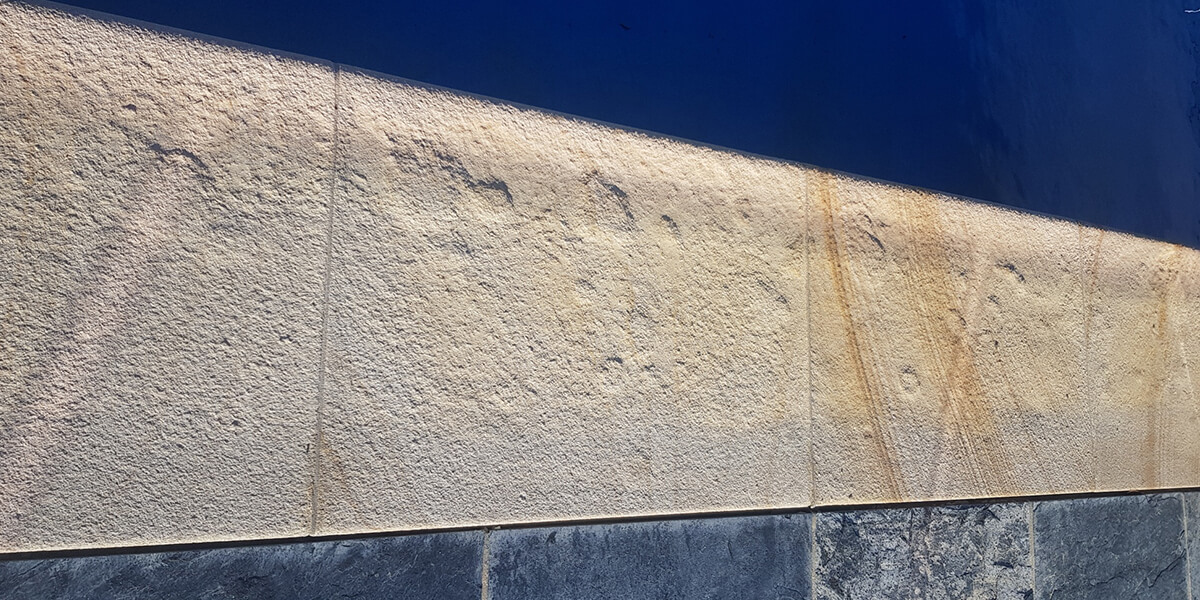
CAN I MAKE MY SANDSTONE COPING SALT SAFE?
Some people believe that sealing sandstone will make their sandstone ‘salt safe’.
This is completely incorrect.
The purpose of a sealer is to reduce the porosity of a stone and in doing so, help the stone withstand stains from non-acidic particles. Since sealers penetrate into the stone but do not alter the stone’s molecular composition, they simply cannot make any stone salt-safe or acid resistant. Only the stone’s density and composition is able to make it resistant to acid or salt-safe.
So if you have issues with your pavers, the sealant is not the cause.
It is the type of stone used that is causing the issue.
WHAT OTHER STONE PAVERS ARE NOT RECOMMENDED AROUND A POOL?
Along with sandstone pavers, there are various types of limestone pavers (not all) that are not recommended for installation around a pool.
At Armstone, we follow a stringent testing process to determine the best longevity and salt safety of limestone pavers that would be most suitable for use around a pool.
Granite and Bluestone are two salt-resistant natural materials that are best suited for installation around a pool. Their only disadvantage is that they feel hot under the feet.
If you want to find out more, we have written a detailed article giving 5 Important Tips on How to Choose Pool Pavers and Pool Coping. Alternatively, watch this video for more information on making the right choice.
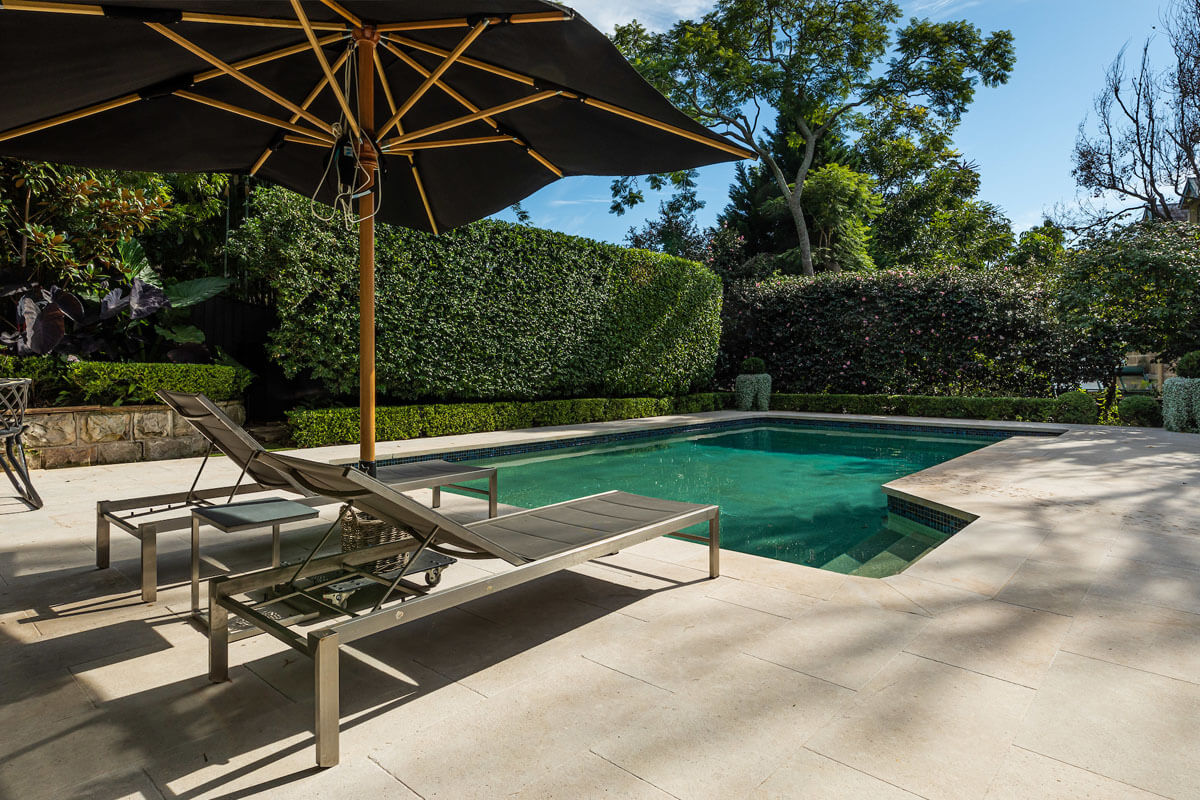
WHAT SHOULD YOU DO IF YOU STILL LIKE TO USE SYDNEY SANDSTONE AROUND YOUR POOL?
If you love sandstone, it is wise to use sandstone look porcelain pavers.
The image below shows how sandstone designed porcelain pavers. These look very natural and the advantage is that because they are only 0.5% porous, you don’t ever have to worry about deterioration or sealing.
You see, porcelain pavers, never permanently stain. And just because it’s not a ‘natural’ product, does not mean it’s an inferior version of Sandstone Pavers. You aren’t making a concession by choosing this type of paver. You are simply picking the right type of stone for the longevity, aesthetic and maintenance for your outdoor pool area.
The sandstone porcelain pavers that we stock at Armstone are made from super strong clay and are extremely dense. As a matter of fact, they are stronger than most of the toughest natural stones pavers.
With a commercial grade slip resistance, porcelain pavers are also ideal for use in wet areas, specifically by the poolside.
Finally, you can sit back and relax with a drink knowing that your whole family can safely enjoy the outdoor pool area and that you don’t need to worry about your pets staining your pavers, discolouration, mould and mildew attacking your porcelain sandstone pavers.
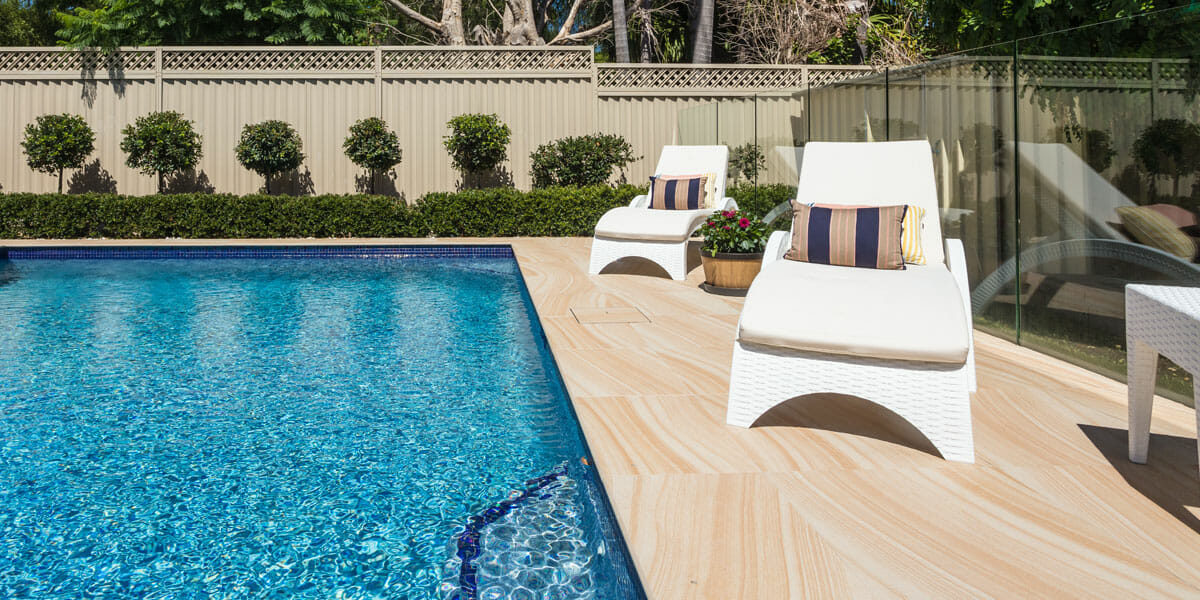
Cattai Sandstone-look Porcelain Pavers
CONCLUSION:
As much as you may love this type of natural stone, you should never use sandstone for around the pool simply because they cannot be made salt-safe.
The (unfortunate for some) reality is that there are some types of natural stones that are just not recommended to be used around a pool.
In the case that you really love sandstone and want to install it around your pool, your best bet is to pick a man-made product. These porcelain pavers are the closest match (both in colour and character) to the natural sandstone you already love. This way, you achieve the best of both worlds: the look of a natural product and the longevity of a non-porous one!
If you have any questions or want to find out more about the most suitable products for your pool surroundings, contact the team at Armstone on 1300 560 560.
We love this stuff and look forward to helping you too.
PS. Below video will help you understand why is it important that your trusted stone suppler works closely with Installer.
